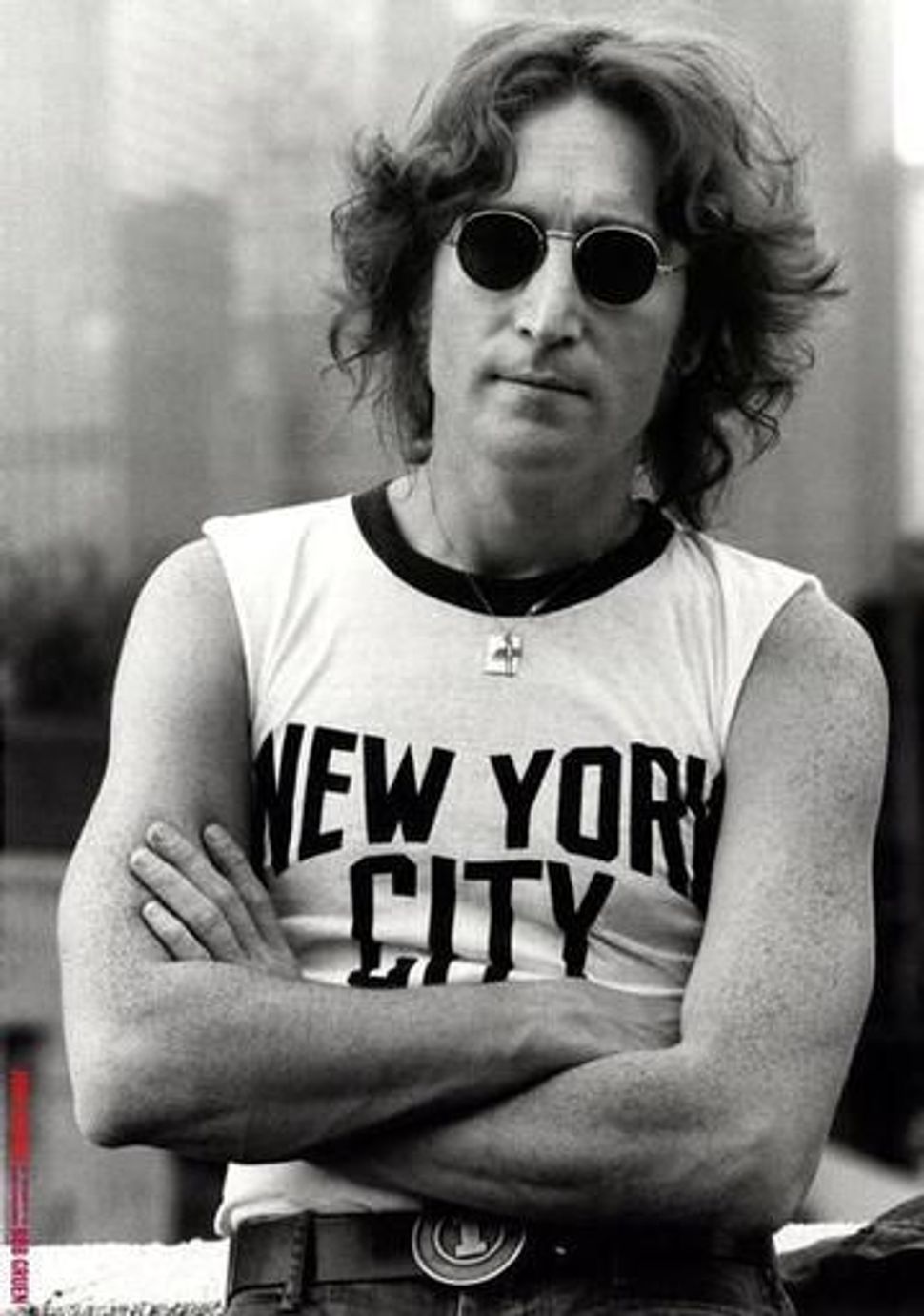30 Years Later, Jews Celebrate John Lennon on Hanukkah

“You came to me one summer night and from your beam you made my dream,” sang the Beatles on their 1964 cover of “Mr. Moonlight.” Yes, the entire song was penned as a love letter. But that doesn’t mean those particular words can’t be applied during Hanukkah, when we celebrate and remember the miracle that occurred at the Holy Temple thousands of years ago.
Coincidentally, this year’s Festival of Lights occurs during the commemoration of an event involving the lead singer of that “Mr. Moonlight” cover, the one and only John Lennon. Thirty years ago tomorrow, the rock legend was gunned down outside of his apartment in New York City.
While it seems silly to compare the late Beatle to Hanukkah — particularly because he was not Jewish — one synagogue in Massachusetts has nevertheless decided to spend the eighth night of the holiday paying tribute to one of the world’s most influential musicians.
“We thought that perhaps with the anniversary of John Lennon’s death … we might attract people from outside of the synagogue to come in,” Barbara Friedman, who helped organize the Tribute to John Lennon Concert at Congregation Agudat Achim, said in an interview with the Forward. “[Lennon] was a man for his time, but he was also a man ahead of his time. He created songs that have a lasting value.”
While few would think of a synagogue as a location to pay tribute for a non-Jewish singer, Friedman pointed out that many of the themes in Lennon’s songs deal with Jewish ideals and beliefs.
“[The event] has, of course, no connection to Hanukkah or being Jewish other than I think lots of John Lennon’s songs have a universal theme of peace [and] love… Every Shabbat we say the prayer for peace [Oseh Shalom].”
The fundraiser will feature a Beatles cover band, Beatles For Sale. Fittingly, Friedman hopes to hear “Come Together” and “Give Peace a Chance,” two songs that fit in perfectly with the spirit of the holiday.
The Forward is free to read, but it isn’t free to produce

I hope you appreciated this article. Before you go, I’d like to ask you to please support the Forward.
Now more than ever, American Jews need independent news they can trust, with reporting driven by truth, not ideology. We serve you, not any ideological agenda.
At a time when other newsrooms are closing or cutting back, the Forward has removed its paywall and invested additional resources to report on the ground from Israel and around the U.S. on the impact of the war, rising antisemitism and polarized discourse.
This is a great time to support independent Jewish journalism you rely on. Make a gift today!
— Rachel Fishman Feddersen, Publisher and CEO
Support our mission to tell the Jewish story fully and fairly.
Most Popular
- 1

Fast Forward Ye debuts ‘Heil Hitler’ music video that includes a sample of a Hitler speech
- 2

Opinion It looks like Israel totally underestimated Trump
- 3

Culture Cardinals are Catholic, not Jewish — so why do they all wear yarmulkes?
- 4

Fast Forward Student suspended for ‘F— the Jews’ video defends himself on antisemitic podcast
In Case You Missed It
-

Culture How one Jewish woman fought the Nazis — and helped found a new Italian republic
-

Opinion It looks like Israel totally underestimated Trump
-

Fast Forward Betar ‘almost exclusively triggered’ former student’s detention, judge says
-

Fast Forward ‘Honey, he’s had enough of you’: Trump’s Middle East moves increasingly appear to sideline Israel
-
Shop the Forward Store
100% of profits support our journalism
Republish This Story
Please read before republishing
We’re happy to make this story available to republish for free, unless it originated with JTA, Haaretz or another publication (as indicated on the article) and as long as you follow our guidelines.
You must comply with the following:
- Credit the Forward
- Retain our pixel
- Preserve our canonical link in Google search
- Add a noindex tag in Google search
See our full guidelines for more information, and this guide for detail about canonical URLs.
To republish, copy the HTML by clicking on the yellow button to the right; it includes our tracking pixel, all paragraph styles and hyperlinks, the author byline and credit to the Forward. It does not include images; to avoid copyright violations, you must add them manually, following our guidelines. Please email us at [email protected], subject line “republish,” with any questions or to let us know what stories you’re picking up.















